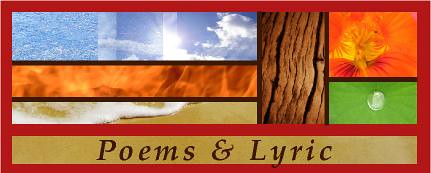Eastern foilage of this tree,
just entrusted to my garden,
hidden secret may there be,
source of pleasure to its warden.
Is the leaf One living being,
seperated in itself?
Is the twofold shape I´m seeing
proof of One united self?
In reply to this your query
I have found the proper key:
Listen to my song and hear me,
I am One, but two in thee!
Johann Wolfgang von Goethe
Gingo Biloba
Dieses Baumes Blatt, der von Osten
Meinem Garten anvertraut,
Gibt geheimen Sinn zu kosten,
Wie`s den Wissenden erbaut.
Ist es ein lebendig Wesen,
Das sich in sich selbst getrennt?
Sind es zwei, die sich erlesen,
Daß man sie als Eines kennt?
Solche Frage zu erwidern,
Fand ich wohl den rechten Sinn:
Fühlst du nicht an meinen Liedern,
Dass ich Eins und doppelt bin?
Johann Wolfgang von Goethe
Whoever read my entry „Metamorphose der Pflanzen“ might fear that I know no other poems but those by Johann Wolfgang von Goethe. That is not the case, though.
I selected this famous poem about the oldest existing species of trees for several reasons:
All through this unusually hot summer I was pleased to see how untouched by any summer tress our little Gingko tree continued to thrive and unfold its interesting leaves. A good reason for me to try and draw attention to this plant! Gingko trees existed already when dinosaurs inhabited our planet. They are one of the oldest plants living on our earth – and very resilient. That is no surprise, of course – how else would they have survived?
A few details: Gingko trees are planted along streets in the dirtiest cities of the northern hemisphere, because they are the only trees to survive there - and filter out fresh air. There was only one plant to survive the atomic bomb thrown on Hiroshima in August 1945 very close to the dropping (1/2 mile) – and that was a Gingko tree. Growing and blooming again soon after. Naturally, this tree has a lot of healing abilities to human beings as well.
Another reason for me to choose this poem was that I felt like making a bilingual entry. My father did the translation; he takes a deep interest in language and communication. Apart from his mother tongue (German) he speaks English, Danish, Russian, French and a little Italian – and he spends part of his time translating poems and short stories from English into German – and vice versa. He called this translation “First Attempt of a Translation into English” – quite a good attempt to my feeling.
Last but not least a few words about the poem: it is a typical poem by Goethe, combining reflections on nature (tree), science (the species he writes about had just been discovered in China when he wrote the poem) and love (one, but two in thee). What I also find interesting is the unexpected change from reflecting upon a theme in the first two rhymes to the sudden turning to the beloved woman (“thee”) in the last rhyme – a change of feeling many of us have felt at one or the other point of life, I suppose.


1 Comments:
Christine – I love the English translation! Your father did a wonderful job. I'm thinking I might want to plant a ginko tree in my yard.
Tammy
Post a Comment
<< Home